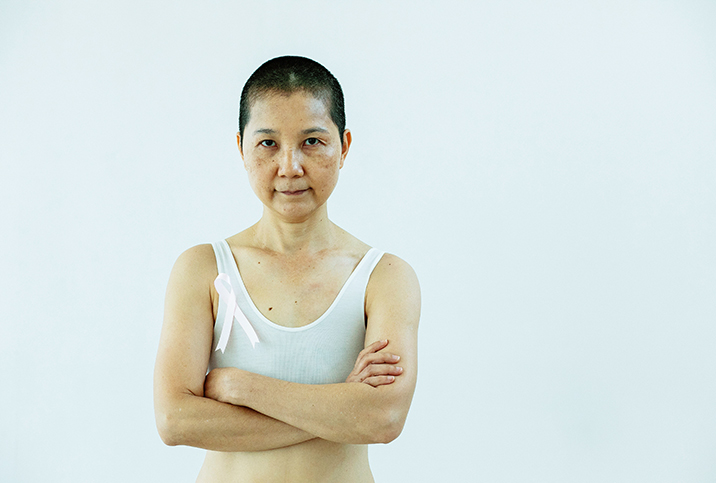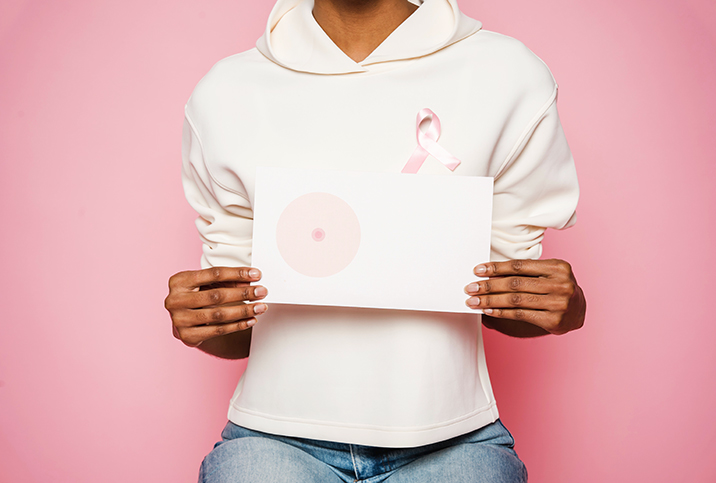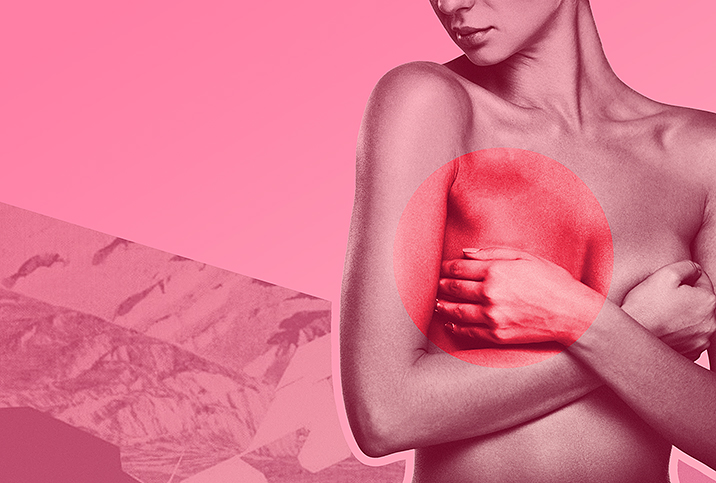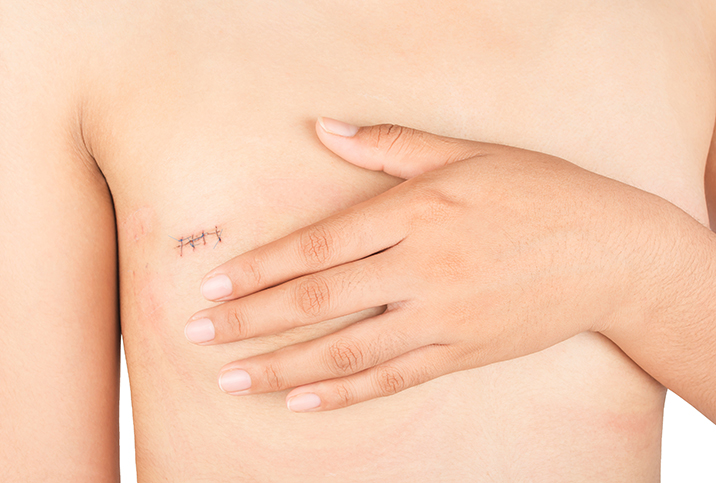Body Image After Breast Cancer

Patients who are undergoing or recovering from breast cancer treatment can experience changes to their bodies that affect the way they feel about themselves.
Hair loss and weight gain are common for chemotherapy patients. Those who undergo surgery will notice immediate issues such as swelling and bruising in the chest and breast area.
These temporary side effects will disappear with time as your body heals. For many women, however, it’s the permanent changes that can spark body worries and dent their self-esteem, making them feel unattractive or less feminine.
Getting used to changes
It's a common saying that the only thing that doesn't change is change itself. The same applies to breast cancer survivors. The first step in healing is accepting certain changes have taken place, getting used to your new body and finding ways to regain your confidence.
If you have a partner, don’t be afraid to show them how you look. The earlier they get in touch with how your body may have changed, the easier it will be to rekindle your romantic spark. But don’t feel pressure to rush that step.
You may find it difficult to look in the mirror and accept these changes yourself at first. Try to remember it gets better with time.
Steps to help you start looking at your body again
- Look at your whole body while clothed and identify the things you like about yourself.
- Repeat step one while wearing lingerie or underwear.
- Look at your whole body while naked and identify what you like and don’t like.
- If you’re comfortable, touch your scars or breast reconstruction, as this will help you come to grips with how you look and feel.
- More is more in this case. The more you look at your body, the easier it will be to accept the changes that have taken place.
Reconstruction and prostheses
Many breast cancer survivors opt to restore their appearance after surgery. Breast reconstruction surgery can help women rebuild their confidence after a mastectomy. Some studies show that undergoing breast reconstruction immediately after surgery can help a woman accept the changes that have taken place, and many women who undergo this procedure report being satisfied with the results.
However, some women find it hard to accept the changes they’ve gone through so rapidly, especially when they are not in touch with their new breasts.
It’s important to note that breast reconstruction only restores the shape of the breast, not the sensations in the breast and nipple.
A breast prosthesis is an artificial breast that is used to replace part of the full breast that has been removed after surgery. Some women use a breast prosthesis temporarily before they have breast reconstruction. For others, breast reconstruction is not an option and they opt for a prosthesis as a long-term solution.
Some women choose not to have a prosthesis or breast reconstruction.
Menopausal symptoms
The most common side effect of breast cancer treatment is the appearance of menopausal symptoms. Treatment alters the production of certain female hormones or stops the production altogether. Common menopausal side effects include:
- Hot flashes
- Night sweats
- Low sex drive
- Effects to orgasm
- Vaginal dryness
- Pain during sex
Weight gain
Weight gain during or after breast cancer treatment can be caused by the drugs themselves, an increase in appetite, or changes in your routine, such as less physical activity during and following treatment. Talk to your doctor about what a healthy diet and appropriate exercise for your post-treatment body.
Hair loss and regrowth
If you have an attachment to your hair or it’s an important part of how you feel, you can lose your confidence and self-esteem when your treatment robs you of hair growth. But hair can grow back, and so can your self-confidence! In the short term, many women opt for wigs, headscarves or other accessories, and some women choose to show off their baldness.
Lymphoedema
Lymphoedema is a build-up of lymph fluid in the surface tissues of the body that causes the hands and/or breast area to swell. The effects of lymphoedema can make you feel bad about your body and make it difficult to accept some permanent changes after surgery. But there are a number of treatments and ways to decrease the risk of this condition, including maintaining a healthy skincare regimen, physical activity, compression garments and massage.
In a nutshell
You may find it difficult to accept changes after breast cancer treatment and surgery. Speaking to a loved one can help alleviate some of the emotional scars. You may also consider seeking the services of a professional to walk with you while you heal physically and emotionally.
Ask your doctor about recommended resources for helping you with this stage of your recovery journey, and seek out survivor support groups to gain friends who share your experience.


















